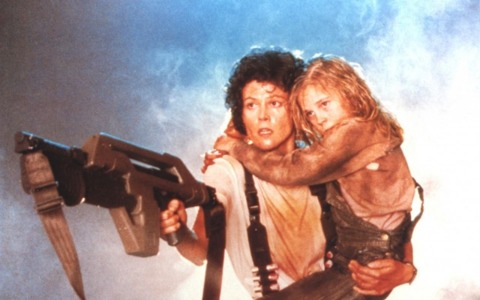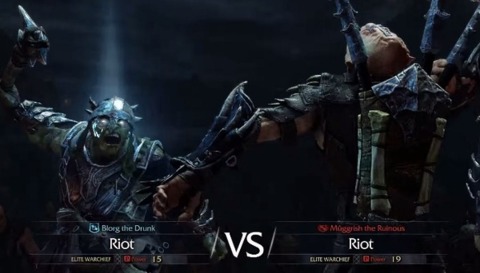When I started dating my wife, she was really into football. More specifically, she was really into the Chicago Bears. Despite growing up in a football household, it never rubbed off on me.

Since I thought she was a pretty cool lady, I made a serious effort to get into football. A few years later, I'm probably more hardcore than she is, following the various storylines, drama, and athleticism across the whole league, instead of simply what's happening with my hometown team.
One of the things that always comes up around non-sports people is curiosity over cheering for something you have no control over. If the Bears win, it has nothing to do with me. If the Bears lose, it has nothing to do with me. That's true, absolutely. I'm not someone who subscribes to karmic influence on a sports team.
That said, my inability to control sports is part of the reason I love it. Watching players at the top of their game making impossible catches and throws is part of it, but the nightmare is part of it, too. None of this matters, all of this matters. My day is made, my day is ruined. Jay Cutler is great, Jay Cutler is the worst.
I love you, football. Go Bears!
You Should Read These
- "Sigourney Weaver on the Legacy of Ellen Ripley, Women in Games, and Her Return in Alien: Isolation" by Jill Pantozzi

It's been 35 years since Ridley Scott's Alien was released, and Ellen Ripley, played by actress Sigourney Weaver, remains one of the most bad ass, inspirational women to hit the silver screen. Ripley's daughter, Amanda, is the star of Alien: Isolation, which was released earlier this week. (My review is here.) Because Weaver was invited to briefly reprise her character for the game, she's been doing some interviews about the game, and Jill Pantozzi passed on some of Weaver's comments. She eloquently talks about the legacy of her character, the inability for Hollywood to regularly invent new female leads, and even touches on the same problems facing games.
“I’m sort of both thrilled about being, having played, a kind of iconic character, but I wish it weren’t such a lonely feeling. Because I do feel that women are so incredible. It seems to be hard for Hollywood to come up with good just sort of straightaway--straight, true women characters that they don’t try to make, you know, ‘sympathetic’ or something. That’s always the kiss of death,” she said. “When a person will try to write you to make people feel something for you instead of just letting you get on with it, it can be a kiss of death. It takes talented people in all these different fields to come up with good men and women characters. There’s so many great examples in the world of powerful, interesting personalities that I hope it’s more--perhaps if more women choose to enter this field of creating games, that will happen. I just think that, as someone who doesn’t know that much about games but thinks they’re great, I just feel like there should be games for everybody, for everybody’s taste. I am sure it will happen.”

Shadow of Mordor is giving us plenty to talk about, and Austin Walker does a terrific job of putting the evolution of the NPC into context. While lavish (and rightful) praise has been directed at Mordor for giving players reasons to care about the characters around them, it's hardly the first to do so, and the groundwork has been steadily built outside the world of video games. Walker tells a particularly harrowing tale about his experience with Watch Dogs, a game he tried to play without killing anyone, and explains why he pulled the trigger. It wasn't a scripted moment, it was an emergent outburst created by the game that collided with real-life experiences.
"However novel this shift is among action games, it actually has roots across other games, in other genres. Dwarf Fortress has been generating funny, sad and terrifying fantasy stories for the better part of a decade. The inhabitants of Dwarf Fortress make jewelry, get drunk and complain about the quality of their bedrooms. In its most recent major update, a new history system allows for the game’s civilizations to pursue large-scale goals alongside the player, expanding, trading, going to war and collapsing.
Non-player characters have had a range of behavioral freedom in The Sims series. In each game, the player is able to determine their own character’s degree of autonomy, while other systems determine the lives of the world’s NPCs. At its most extreme, in The Sims 3, a player can use the NRass StoryProgression mod, which enhances the game’s built in simulation systems, allowing for a whole city of motivated, self-functioning Sims. Unfortunately--especially given the success of Mordor’s procedural NPCs--The Sims 4 removed this, with only the player’s characters advancing through a life of love, work and intrigue."
If You Click It, It Will Play
These Crowdfunding Projects Look Pretty Cool
- H. P. Lovecraft: The Case of Charles Dexter Ward is new horror from the developers of Scratches.
- The Black Glove is a surrealistic experience from a group of ex-Irrational developers.
- The Flame in the Flood is also from ex-BioShock creators, focused on surviving a river.
Writing From Giant Bomb's Community, Courtesy of ZombiePie
- Sanj created three amazing works of fanart inspired by Metal Gear Scanlon.
- Dantey attended a community tournament for Hearthstone and writes about the experience.
- MattyFTM has a detailed report about the 2014 Eurogamer Expo convention.
- The Scotchcast features all of the major users behind the Giant Bomb Extra Life 2014.
Tweets That Make You Go "Hmmmmmm"
how is there no Kinect game about grilling out
— Garrett Martin (@grmartin) October 7, 2014
Listen you fuckers I'm really a nice guy.
— Dave Lang (@JosephJBroni) October 10, 2014
If Smash Bros. on 3DS was an elaborate plan by Nintendo to make people want to buy a Wii U, it's working.
— Chris Kohler (@kobunheat) October 7, 2014
Voicing even civil disagreement, and you're told the fuck off, and I'm the unreasonable one for being all, "hey, chill out."
— Jim Sterling (@JimSterling) October 10, 2014
Oh, And This Other Stuff
- Philip Kollar speaks with Blizzard Entertainment about the company's future.
- Carina Chocano suggests virtual reality could represent a new medium altogether.
- Andrzej Poznanski explains how The Vanishing of Ethan Carter's textures got so detailed.
- Jim Sterling investigates how Warner Bros. tried to ensure positive YouTube coverage.
- Jeremy Parish explains how working in the games press has altered his perspective over the years.
- Durante, savior of mediocre PC ports, explains what developers should be building into their games.
- Yannick LeJacq tries to articulate his love for the violence in Shadow of Mordor.
- Taylor Hidalgo writes about how games can make us fear the uncertain.
- Matt Gerardi argues the new Super Smash Bros. finally decides to double down on expert play.
- Leszek Lisowski explains how they were able to get tons and tons of games for Steam.
- Jeffrey Matulef believes the Souls series has been going downhill since Demon's Souls.
- Kathy Sierra relays a harrowing and terrifying story about Internet harassment.